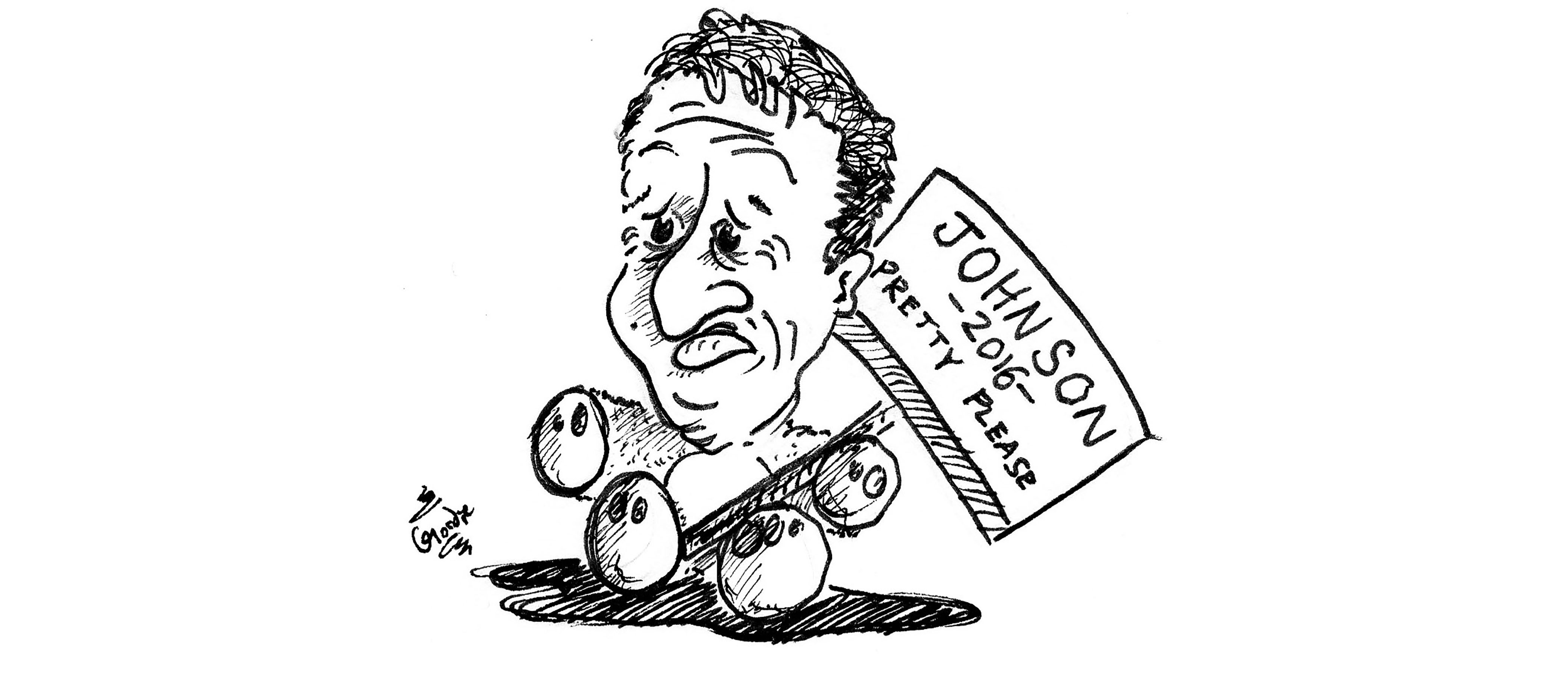“Gare-Bear” by Gordon Johnson.
AUSTIN KLAWITTER | OPINION COLUMNIST | aklawitt@butler.edu
President Abraham Lincoln once gave his two cents about participation in elections in the United States.
“Elections belong to the people,” Lincoln said. “It’s their decision. If they decide to turn their back on the fire and burn their behinds, then they will just have to sit on their blisters.”
The United States is fortunate enough to be a free democracy that celebrates free speech as well as freedom of expression. Citizens have the incredible right to vote, and the right not to vote.
The system allows citizens to have their own personal political ideologies that can vary with every issue. However, since the 1800s Americans have defined themselves as having more commonalities with one of the two major political parties: Democrats or Republicans.
Each party has a fairly unwavering set of core ideologies, with members deliberating, debating and voting on various issues as they occur. Certain individuals, however, dare to define themselves as neither of these political powerhouses, but rather a third party.
Third parties have always been present in the government of the United States, but their influence faded since their glory days in the 1800s, as it has been continually stifled by the two-party system.
The 2016 election is no exception to the plight of the Democrat and Republican dominance; however, the nature of the candidates seems to have guided more than usual toward lesser-known parties.
Libertarian candidate Gary Johnson and Green Party candidate Jill Stein have become two of the choices for those wishing to stay away from the rather controversial candidates of the Democratic and Republican parties.
The issue with voting third party is the “winner take all” system the United States abides by. The electoral college makes it very difficult for third parties to win states simply because the Democratic and Republican parties are the most popular. This drives voters to either choose a candidate based off their own political beliefs or based upon winning chances.
Ross Ivan, a first-year political science and history double major, is a Gary Johnson supporter. He said voters need to choose candidates with whom they agree.
“I just vote for who I think is the best candidate, not who I think is going to win,” Ivan said. “I vote who best represents what I find important in a presidential candidate. If everybody voted for who they thought was best, not who was going to win, or who is in a popular party, then third party candidates would do much better. The stigma associated with third parties, and the idea of a wasted vote degrades the impact a third party could potentially have.”
This idealistic view of the American election system would certainly please the founders of this great nation, calling to actions the issues we have with political parties and their domineering role over politics. However, like Ross infers, it is certainly not the reality of how American voters behave.
For example, President George W. Bush may not have won the election in 2000 had Ralph Nader not siphoned so many votes off of Al Gore in Florida. The controversy brought negative attention to third parties, and further proved to most that they only serve to distract from the inevitable — a major party victory.
Unless some kind of change occurs in our election system, voting for a third party may be the accurate representation of opinion, but it amounts to nothing in the end. States are either red or blue.
Addie Barret is a senior human communication and organizational leadership and gender, women and sexuality studies major.
She is also a Gary Johnson fan but is debating whether or not to vote for him.
“I align with him on almost every issue compared to the two main party candidates,” Barret said. “But I know his chances of winning are very small. That part of me doesn’t want to ‘waste my vote.’”
As election day grows nearer and the nation is faced with choosing the next president of the United States, I ask you choose your candidate keeping in mind all of the factors of the election.
Choosing a candidate based off of your personal ideologies is American, it’s democratic, and it’s respectable; but, you are also going to be stuck with a new leader of the free world for the next four years. Use your powers to make it a good one.



